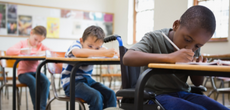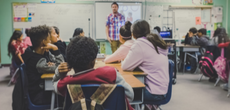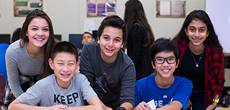The Summer We Watched Possibility Turn Into Proof
There’s a moment in every good story when the work stops being practice and starts being real. For students this summer, that moment looked like sticky fingers, a half-straightened label, and a customer who smiled at the very first bite. On a Wednesday that smelled faintly of printer ink and strawberries, a circle of teenagers leaned over jars and sketches, debating fonts and colours with the seriousness of seasoned entrepreneurs.
“Bolder font.”
“Cleaner.”
“Does this feel like us?”
What began as an idea on paper had become something you could hold, taste, and share, a business with a name, a product, and a story of its own.
They called it Strawbuddies, a name born from a dozen discarded ideas and one shared belief: we can do this. Not in theory. Not someday. NOW. This was the heartbeat of a BIPOC JA Company Program, a space intentionally built so young people who have been told “wait your turn” more times than they can count could build, sell and learn right now.
With mentors like Sarah Lane and Ally Pyle asking sharper questions instead of giving easy answers, the students learned that business is less about having the perfect plan and more about listening, iterating, and showing up. The McCall MacBain Foundation made sure the lights were on, the doors were open, and the tools were there. The students did the rest.
And it wasn’t just a classroom that changed this summer.
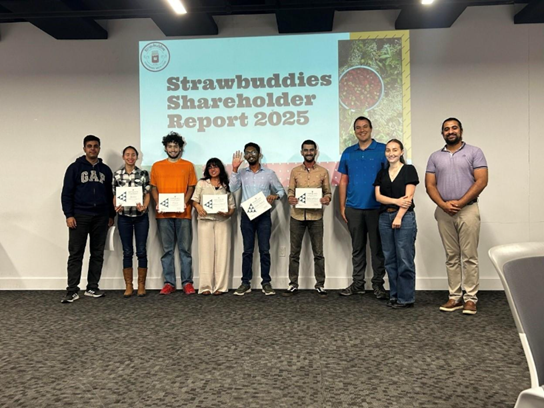
Down the highway in Port Hope, conversations turned into commitments. At Trade Tech Industries, our President & CEO, John McNutt, stood beside Ontario’s Minister of Labour, Immigration, Training & Skills Development, David Piccini (also MPP for Northumberland-Peterborough South), to talk investment in skills and about the future of Ontario’s workforce.
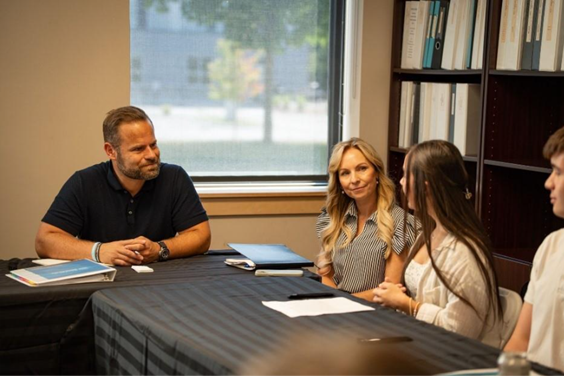
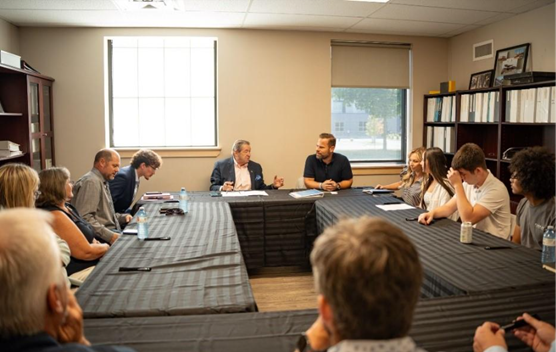
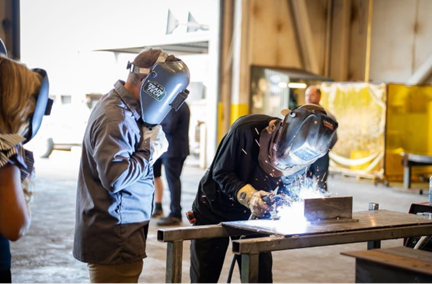
The conversation was practical in the best way: how do we get more young people into the pipeline: skilled, confident, and hungry to learn? What do employers need? What tools do young people need? Where do employers have openings? And how do we stitch those two maps together?
Then came Avery Pick’s story, a JA student from Flexjet, a small, clear example of what happens when opportunities meet preparation and how a program cracked open a door. She didn’t speak from a script; she spoke from a place that said, “This program changed the way I see what I can do.” That line landed in a room full of policymakers and employers in a way that budgets never could.
Back in the JA Company Program, the team was learning a quieter lesson: entrepreneurship isn’t a sprint to a finish line; it’s a conversation with your community. Strawbuddies wasn’t just delicious, it was local, theirs, and surprisingly sophisticated for a first product because the students made it that way. They learned that pricing is a story, packaging is trust, and a good debrief after a bad sales day is the difference between stuck and stronger.
When the Rossy Foundation, in celebration of Dollarama’s 30+ years serving Canadians, stepped in to support JA’s signature JA Company Program, it clicked into place. This is how change scales: one partner steadies the ladder while another holds the blueprint, and the students climb.
If you pull the camera back, the picture is simple and stunning: A jar of jam that began as a half-sketched idea and now sits in someone’s kitchen, proof that youth can ship real things. The roundtable and sight tour in Port Hope, where industry and education agree that opportunity isn’t accidental; it’s designed. And finally, a student story that reminds us investment isn’t measured only in dollars, it’s measured in direction.
Through it all is a throughline of leadership you almost don’t notice until you do, the steady, student-first focus of John McNutt. No fanfare, just the same question asked in different rooms: What would it take for this young person to thrive? Ask that enough times, and you get summers like this one.
So yes, we taught budgeting and marketing. We practised pitching and customer engagement. We checked all the boxes that look good in a report. But the real outcome is harder to graph and easier to feel: Confidence. The kind that turns “maybe” into “I’ll try,” and “I’ll try” into “I did.” It’s students learning to speak up in a meeting, to balance a budget, to take a risk and survive it. It’s a bedtime conversation about price points and packaging that would have sounded impossible before. The moment a student stops waiting to be chosen and starts choosing themselves.
If you read one line and take it with you, let it be this: when communities, mentors, funders, and leaders ask the same question: How do we help young peoplethrive? The answer is not a single program. It’s a network of small, stubborn acts that, together, change trajectories.
We’re not done. Strawbuddies is Chapter One. The roundtable in Port Hope is a bridge. The support from our partners is fuel. And the next student who walks into a JA room will find not just a lesson, but a launchpad.
We’re building more of them.
Want to help write Chapter Two? Mentor, host, invest, or simply come listen. Stop by and ask a student what they’re working on. They’ll light up. You will, too.
From ideas to impact, from “maybe” to “we did it”, that was the story of our summer. And if the students have anything to say about it, it’s only Chapter One.







